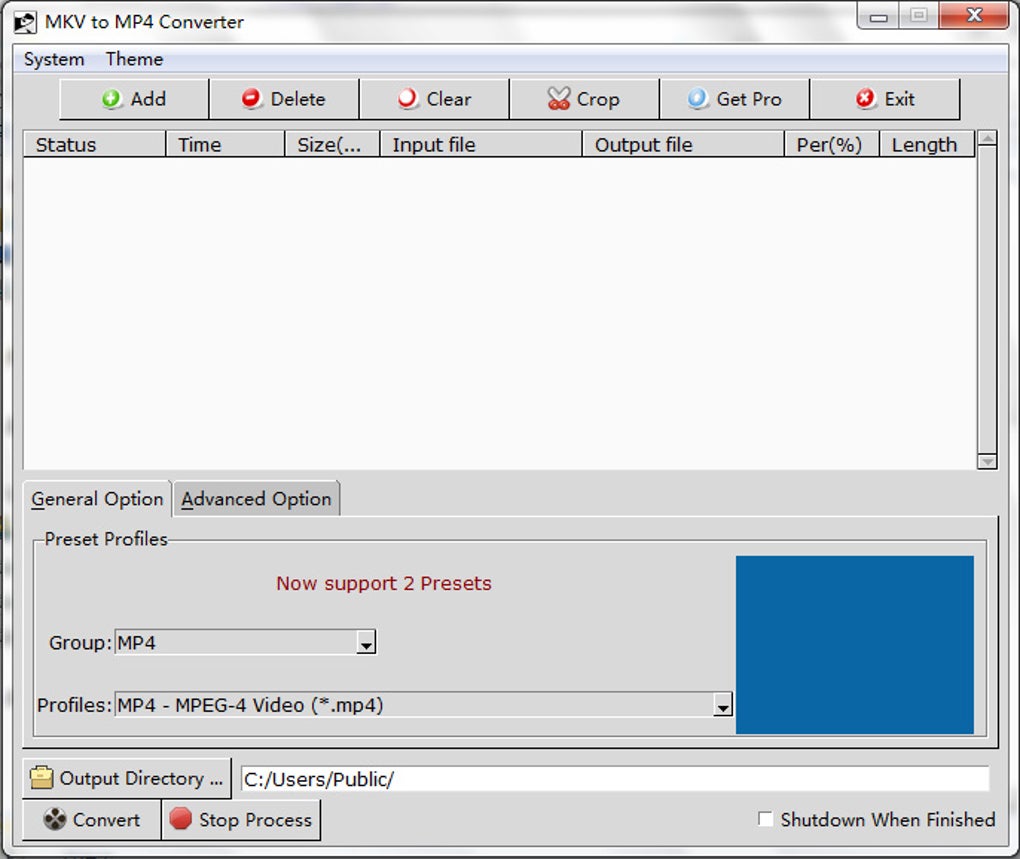Are you wondering what is MKV and why it has become one of the most popular video file formats today? MKV, or Matroska Video, is a versatile container format designed to store high-quality video, audio, and subtitles in a single file. Whether you're a casual video watcher or a professional editor, understanding MKV can enhance your media experience.
As technology evolves, the demand for high-quality video content continues to rise. MKV addresses this need by offering advanced features that ensure seamless playback across multiple devices. Unlike traditional formats like MP4 or AVI, MKV supports a wide range of codecs and advanced functionalities, making it a preferred choice for many users.
In this article, we will explore what MKV is, its advantages, how it works, and why it stands out compared to other video formats. Whether you're looking to convert, play, or edit MKV files, this guide will provide you with all the information you need to make the most of this powerful format.
Read also:Harry Jowsey The Remarkable Journey Of A Talented Individual
Table of Contents
- What is MKV?
- Features of MKV
- Advantages of MKV
- How to Play MKV Files
- Converting MKV Files
- Editing MKV Files
- MKV vs Other Video Formats
- Common Issues with MKV Files
- Solutions to MKV Problems
- Conclusion
What is MKV?
MKV, short for Matroska Video, is an open-standard container format that can hold an unlimited number of video, audio, picture, and subtitle tracks in a single file. Developed by the Matroska Development Team, this format is designed to be future-proof, meaning it can adapt to new technologies and codecs as they emerge. The name "Matroska" comes from the Russian word "matryoshka," which refers to nested dolls, symbolizing the format's ability to encapsulate multiple types of data within one file.
One of the key reasons MKV has gained popularity is its flexibility. Unlike other formats, MKV supports virtually all modern codecs, including H.264, H.265 (HEVC), VP9, and AV1. This makes it an ideal choice for storing high-definition and ultra-high-definition content.
History of MKV
The development of MKV began in 2002 as part of the Matroska project, which aimed to create a universal multimedia container format. Over the years, MKV has evolved to become one of the most widely used video formats, particularly among tech-savvy users and media enthusiasts. Its open-source nature has contributed significantly to its adoption, as it allows developers to improve and expand its capabilities continuously.
Features of MKV
MKV offers a wide range of features that set it apart from other video formats. Below are some of the standout characteristics of MKV:
- Multiple Tracks: MKV can store multiple video, audio, and subtitle tracks, making it easy to switch between different languages or audio options during playback.
- Support for Advanced Codecs: MKV supports a variety of modern codecs, ensuring compatibility with high-definition and ultra-high-definition content.
- Chapter Support: MKV files can include chapter markers, allowing users to navigate through long videos easily.
- Metadata Storage: MKV files can store metadata such as titles, descriptions, and tags, enhancing the overall user experience.
- Error Recovery: MKV has built-in error recovery capabilities, which means that even if part of the file is corrupted, the rest of the content can still be played.
Advantages of MKV
There are several reasons why MKV is considered one of the best video formats available today. Here are some of its key advantages:
1. Versatility: MKV can handle virtually any type of multimedia content, making it suitable for a wide range of applications.
Read also:Barbara Palvin The Rise Of A Global Fashion Icon
2. High-Quality Output: MKV supports lossless compression, ensuring that the quality of the original content is preserved during playback.
3. Open-Source Nature: As an open-source format, MKV is free to use and can be improved by developers worldwide, leading to continuous innovation.
4. Cross-Platform Compatibility: MKV files can be played on various platforms, including Windows, macOS, Linux, and mobile devices.
Why Choose MKV Over Other Formats?
Compared to other video formats like MP4 or AVI, MKV offers more flexibility and advanced features. While MP4 is widely supported, it lacks some of the capabilities that MKV provides, such as support for multiple audio and subtitle tracks. Additionally, MKV's open-source nature ensures that it remains up-to-date with the latest technological advancements.
How to Play MKV Files
Playing MKV files is relatively straightforward, but it requires the right software. Most modern media players, such as VLC, KMPlayer, and MPC-HC, support MKV natively. However, if you encounter playback issues, you may need to install additional codecs or update your media player.
Top Media Players for MKV
- VLC Media Player: A free, open-source player that supports MKV and a wide range of other formats.
- KMPlayer: A versatile media player known for its ability to handle complex MKV files.
- MPC-HC (Media Player Classic - Home Cinema): A lightweight player that offers excellent MKV playback performance.
Converting MKV Files
While MKV is a versatile format, there may be situations where you need to convert it to another format, such as MP4 or AVI. Fortunately, there are many tools available that can help you with this process. Some popular options include HandBrake, Freemake Video Converter, and Online Video Converter.
Steps to Convert MKV to MP4
- Download and install a reliable converter like HandBrake.
- Open the MKV file in the converter and select the desired output format (e.g., MP4).
- Adjust the settings if necessary, such as resolution and bitrate.
- Start the conversion process and wait for it to complete.
Editing MKV Files
Editing MKV files can be a bit more challenging than editing other formats, but with the right software, it is certainly possible. Programs like MKVToolNix, Avidemux, and Adobe Premiere Pro offer robust tools for editing MKV files without compromising their quality.
Using MKVToolNix for Editing
MKVToolNix is a powerful tool for editing MKV files. It allows users to add, remove, or reorder tracks, as well as merge multiple MKV files into one. Additionally, MKVToolNix can extract audio and subtitle tracks for further editing.
MKV vs Other Video Formats
When comparing MKV to other video formats, it's important to consider factors such as compatibility, quality, and functionality. Below is a comparison of MKV with some of the most popular video formats:
| Format | Compatibility | Quality | Functionality |
|---|---|---|---|
| MKV | High (with appropriate software) | Excellent | Advanced |
| MP4 | Very High | Good | Basic |
| AVI | High | Good | Limited |
Common Issues with MKV Files
While MKV is a powerful format, users may encounter certain issues when working with it. Some common problems include:
- Playback Issues: Certain media players may not support MKV files out of the box, requiring additional codecs or updates.
- Large File Sizes: MKV files can be significantly larger than other formats, which may be a concern for users with limited storage space.
- Compatibility Problems: Some devices, particularly older ones, may not support MKV playback.
Solutions to MKV Problems
To address the issues associated with MKV files, consider the following solutions:
- Use Compatible Media Players: Ensure you are using a media player that supports MKV, such as VLC or KMPlayer.
- Optimize File Size: Use tools like HandBrake to compress MKV files without sacrificing quality.
- Convert to Other Formats: If compatibility is an issue, consider converting MKV files to a more widely supported format like MP4.
Conclusion
MKV, or Matroska Video, is a versatile and powerful video format that offers numerous advantages over traditional formats like MP4 and AVI. Its ability to store multiple tracks, support advanced codecs, and provide error recovery makes it an ideal choice for both casual users and professionals. By understanding what MKV is and how to work with it, you can enhance your media experience and take full advantage of its capabilities.
We encourage you to share your thoughts and experiences with MKV in the comments section below. Additionally, feel free to explore our other articles for more insights into video formats and multimedia technologies. Together, let's continue to learn and grow in the ever-evolving world of digital media!
For more information on MKV and related topics, you can refer to the following sources:


